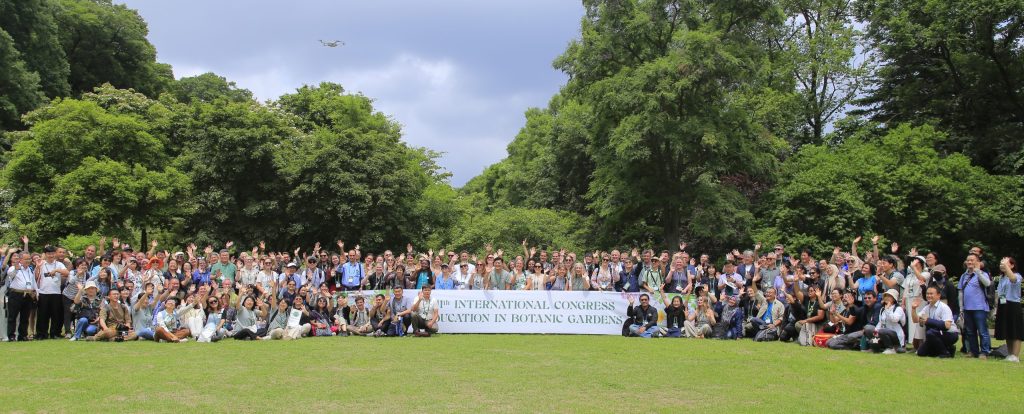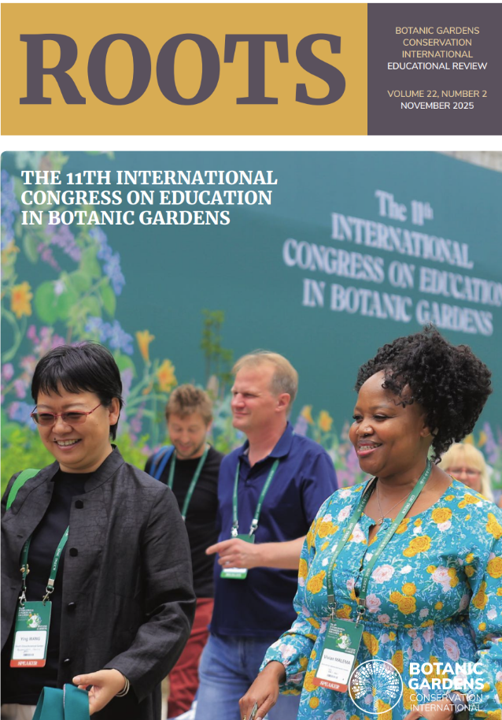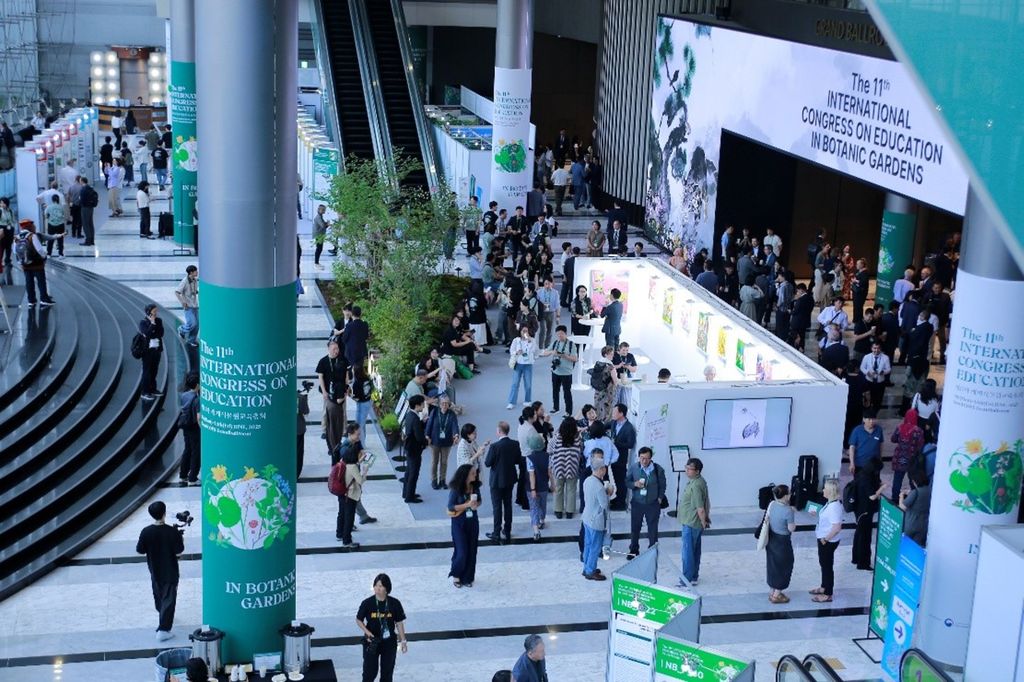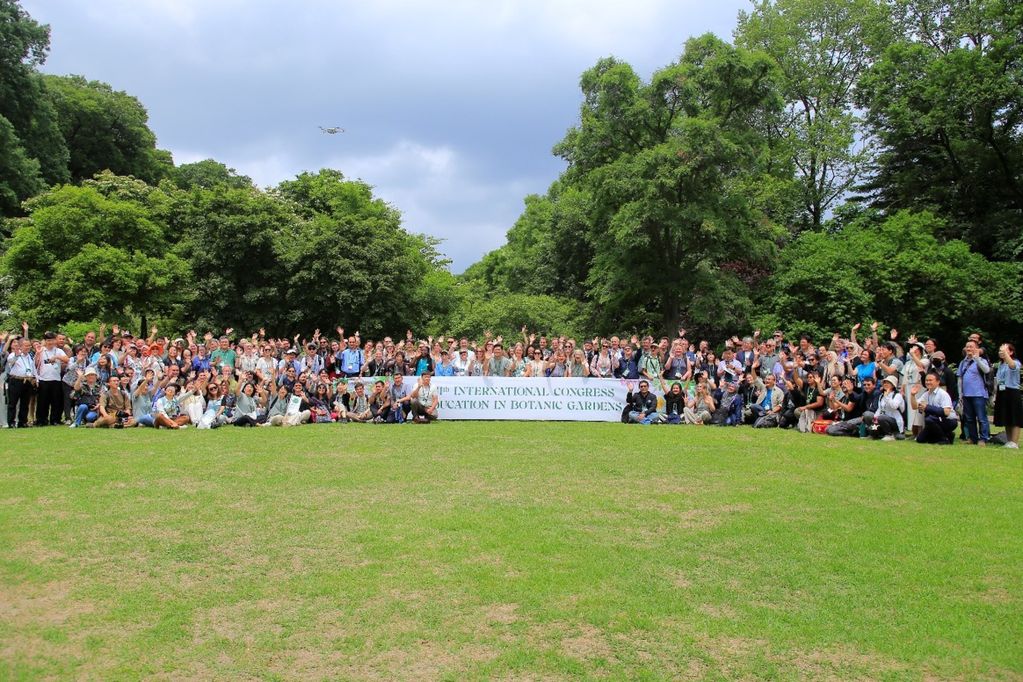11th International Congress on Education in Botanic Gardens Resources
The 11th International Congress on Education in Botanic Gardens took place on 9th – 13th June 2025 in Seoul, South Korea, hosted by the Korea National Arboretum. The theme of the Congress was “Education for change: Botanic Gardens’ role in addressing global challenges” with 1,736 delegates from 53 countries and 244 organisations participating – the largest BGCI Congress to date!

Congress themes
1. Enhancing Health and Wellbeing: Value of Botanic Gardens
- 1-1. Exploring the connection between exposure to nature in botanic gardens, ecological awareness, and its positive impact on mental health.
- 1-2. Developing educational programs that promote mindfulness, stress reduction, and emotional wellbeing through interaction with nature in botanic gardens.
- 1-3. Recognizing and understanding ecoanxiety as a response to environmental challenges.
- 1-4. Examining the role of therapeutic horticulture programs in botanic gardens for mental health.
2. Breaking Down Silos: Building Interdisciplinary Partnerships
- 2-1. Showcasing successful examples of interdisciplinary initiatives that integrate botany, climate science, and conservation education.
- 2-2. Discussing the benefits and challenges of adopting a more holistic approach, interconnected approach to teaching in botanic gardens to address complex issues like biodiversity loss and other climate challenges.
- 2-3. Creating partnerships between large botanic gardens and smaller local gardens to share resources, expertise, and best practices: ‘Jardines Hermanos’.
- 2-4. Setting up collaborative networks for enhancing educational programming and addressing common conservation challenges.
- 2-5. Sharing benefits of using behaviour change approaches and behaviour-centred design frameworks to support positive action collaboratively.
3. Harnessing the Power of Technology: Learning and Engagement for All
- 3-1. Showcasing interactive educational tools within botanic gardens to enhance engagement and learning about climate challenges.
- 3-2. Providing educators with adaptable teaching strategies to address evolving challenges in biodiversity and climate, fostering resilience and flexibility in their approaches.
- 3-3. Incorporating gamification elements to the learning programmes.
4. Empowering Youth Voices: Youth as Key Stakeholders in Climate Action
- 4-1. Exploring effective communication strategies to engage and inspire youth in climate science and conservation: youth as change-makers.
- 4-2. Fostering collaboration between youth, scientists, and educators to co-create climate research projects and drive meaningful action.
- 4-3. Youth-led citizen science: Providing training and resources for youth to conduct climate-related research and contribute valuable data to scientific understanding.
- 4-4. Empowering youth through volunteering: Creating opportunities for youth to actively participate in botanic garden initiatives through structured volunteering programs.
5. Leaving No One Behind: Promoting Equity, Inclusion, and Community Engagement in Botanic Gardens
- 5-1. Identifying and addressing socio-economic, cultural, and physical barriers that prevent marginalized communities from accessing and engaging with botanic gardens and educational programs.
- 5-2. Engaging local communities in the co-creation of educational programs aimed at fostering awareness about conservation initiatives in botanic gardens.
- 5-3. Incorporating indigenous perspectives, knowledge systems, and traditional ecological knowledge into botanical education and conservation efforts.
- 5-4. Supporting efforts to safeguard and revitalize traditional languages, stories, songs, and ceremonies that are closely tied to botanical knowledge and practices.
- 5-5. Integrating cultural heritage preservation into botanical education and interpretation programs within botanic gardens to foster appreciation for the interconnectedness of cultural and biological diversity.
- 5-6. Examining how biocultural diversity contributes to the resilience and adaptive capacity of communities in the face of environmental change and socio-economic challenges.
Congress programme
A selection of sessions from the Congress programme are available to watch, this includes the opening and closing ceremonies, keynote and plenary speakers and some selected panel sessions.
Social events
During the congress there were a range of social events that delegates were treated to. This included a Congress dinner with a performance by the Saengdonggam-Crew. And a post-tour workshop to the DMZ which included a special concert at the War Garden.
Latest ICEBG news
Associated resources
-
11ICEBG Abstract Book
Public Engagement / Publication / EnglishAbstracts for the sessions of the 11th International Congress on Education in Botanic Gardens -
11ICEBG Congress Pocket Programme
Public Engagement / Publication / EnglishPocket programme for the 11th International Congress on Education in Botanic Gardens
Share








